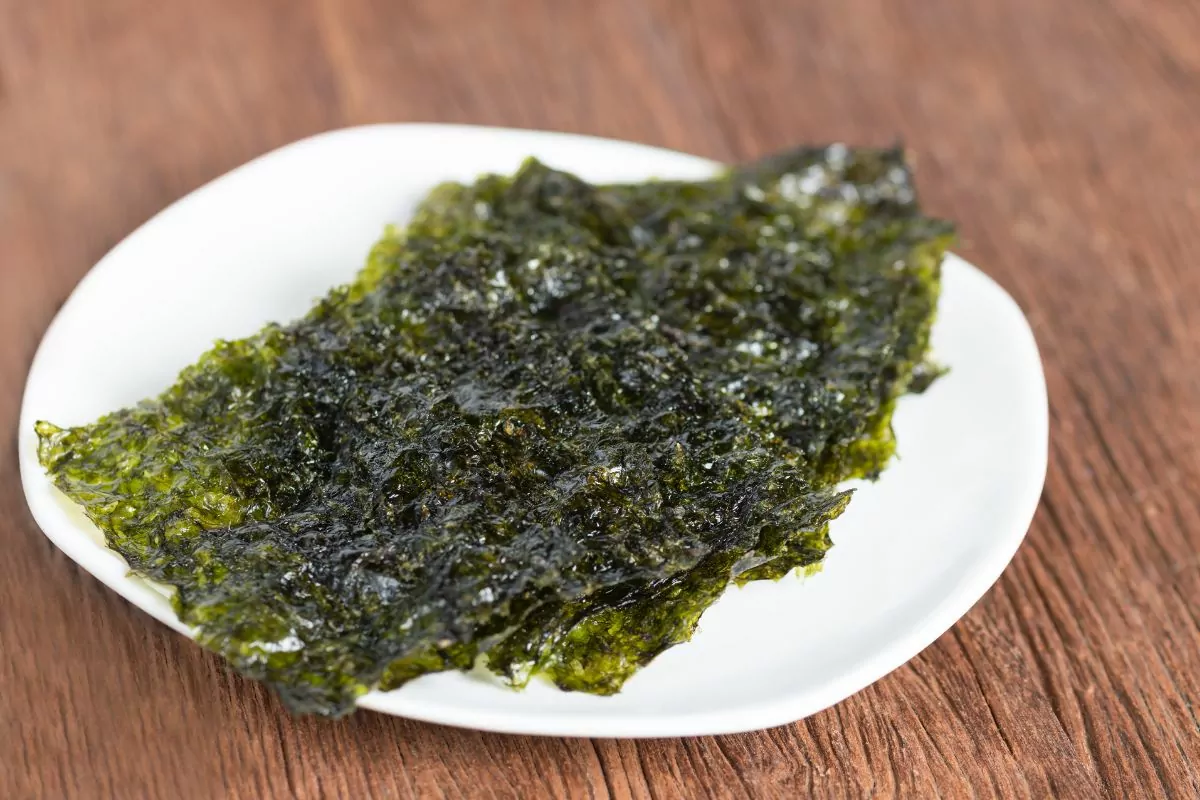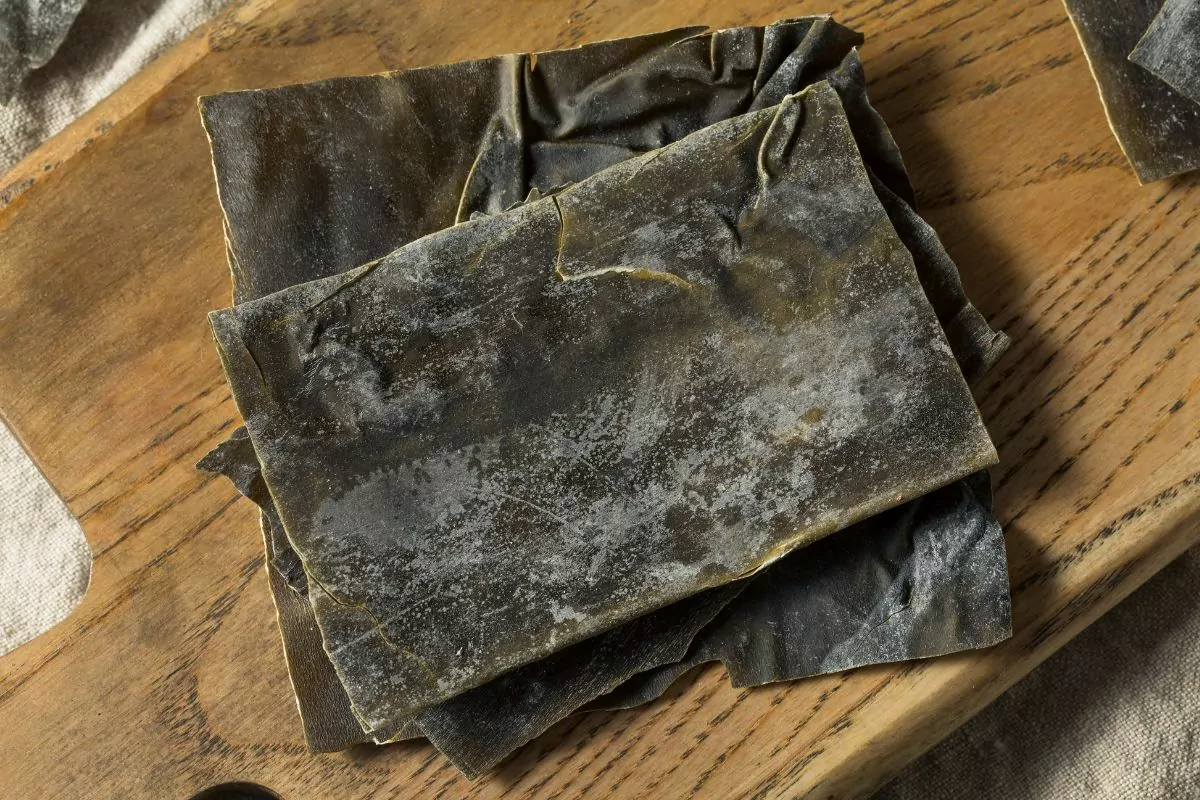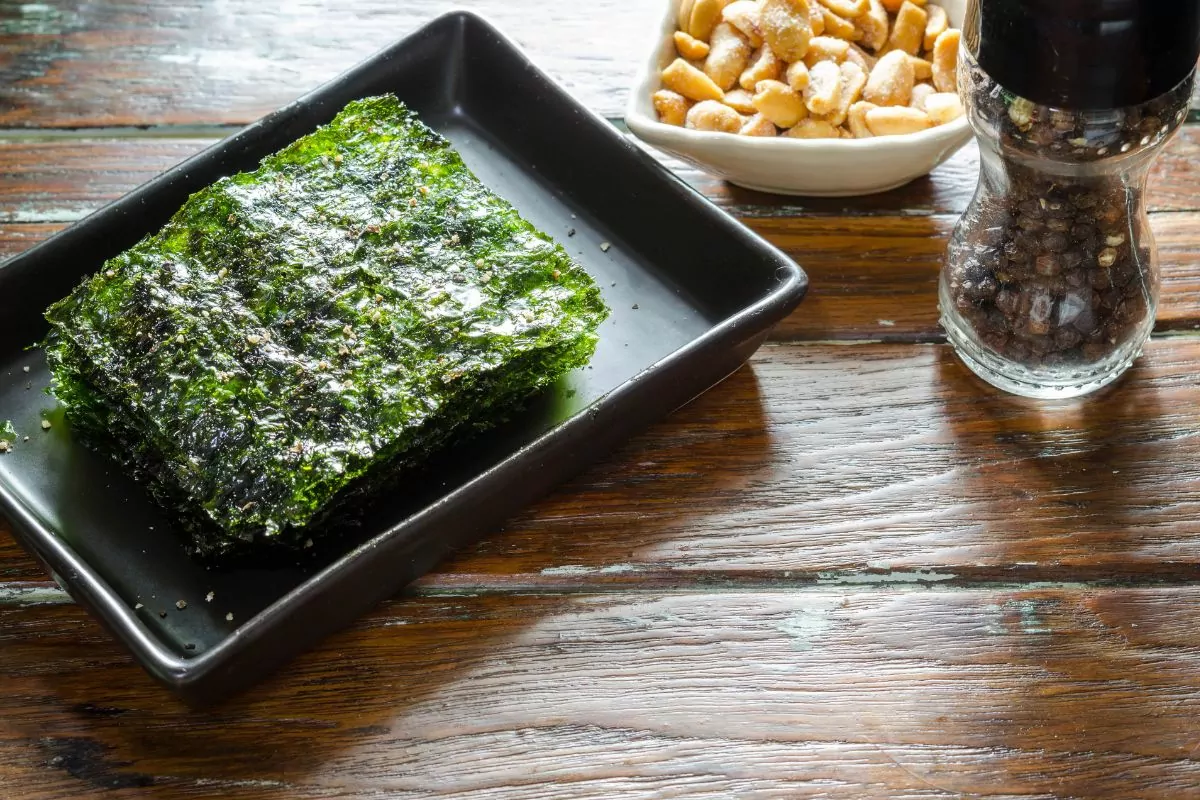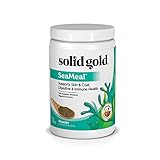What is Seaweed?
You may wonder, what is seaweed, and can cats eat seaweed? Seaweed is an aquatic plant that thrives underwater, primarily in oceans and along coastlines.
Unlike land-based plants, seaweed lacks typical roots, stems, or leaves and instead features fronds (the leaf-like structures that seaweed uses for various functions, including capturing nutrients from the surrounding water) or blades to absorb nutrients from the water.
Can Cats Eat Seaweed?
Can cats eat seaweed sheets? You might ask yourself this while making seaweed for yourself, maybe for a healthy smoothie or a quick side dish. If it’s okay for humans, is seaweed good for cats, too? It can be an excellent addition to their diet if given in moderation. It might even help with some common stomach and digestion issues in cats.

Is Seaweed Safe for Cats?
Yes, seaweed is safe for cats. It contains various nutrients and can offer certain health benefits for cats. However, there are important considerations to keep in mind:
- Moderation is key: While small amounts of seaweed have benefits, excessive consumption can lead to health issues, including hyperthyroidism. Providing seaweed as an occasional treat or supplement is crucial rather than a significant part of their diet.
- Quality matters: Ensure that the seaweed you offer to your cat is high quality and intended for human consumption. Don’t use seaweed collected from the ground or potentially contaminated sources.
- Consult your vet: Before introducing any new food or supplement into your cat’s diet, consult your veterinarian. They will provide guidance based on your cat’s specific health and dietary needs.
In conclusion, when used wisely, seaweed is safe and beneficial for cats. It’s always best to prioritize your cat’s overall diet, which should primarily consist of high-quality cat food.
Do Cats Like Seaweed?
Cats don’t typically have a natural preference for seaweed. Seaweed isn’t a part of their usual diet in the wild, and feline tastes tend to favor meat-based foods.
However, some cats may occasionally be curious about seaweed due to its texture or aroma, but monitoring their consumption is essential.
How to Safely Feed Seaweed to Felines
Deciding whether to give seaweed to your cat depends on the pros and cons. If you choose to include seaweed in your cat’s diet, do so in amounts that will not cause any health issues.
Benefits of Feed Seaweed to Cats
When choosing what to feed your cat, it’s essential to aim for ingredients that provide the most benefits without causing harm. This is good for your cat’s health and your wallet. Seaweed, considered a nutrient-packed superfood, offers a range of advantages for your feline friend:
Healthy Gut
Seaweed contains prebiotics, which support the beneficial bacteria in your cat’s digestive system. This helps with digestion nutrient absorption, and bolsters the immune system.
Enhances Coat Shine
A glossy coat makes your cat even more pettable. Seaweed contains omega-3 fatty acids that contribute to silky, smooth fur. It strikes a balance, ensuring your cat’s coat looks fantastic.
Reduces Free Radical Damage
Cats, like humans, deal with free radicals and oxidative stress as a part of life. While you can’t entirely avoid these, you can reduce their harmful effects. Seaweed contains antioxidants that help your cat’s cells repair themselves and combat the adverse effects of aging and disease, making your cat more resilient.
Incorporating seaweed into your cat’s diet can provide these benefits, contributing to their overall well-being and quality of life.

Can Cats Eat Nori?
Absolutely. Seaweeds contain many nutrients, so it’s important to use them sparingly. Remember not to surpass your pet’s recommended daily allowance (RDA) for iodine, especially if your pet follows a raw diet.
Seaweeds are rich in iodine, and excessive consumption can adversely affect their health, leading to a thyroid gland disorder that results in the overproduction of thyroid hormones, which can cause a range of health issues, including:
- Increased heart rate
- Weight loss
- Restlessness and hyperactivity
- Vomiting and diarrhea
- Increased thirst and urination
- Poor coat condition
- Behavioral changes
Can Cats Eat Dry Seaweed?
Cats can technically eat dry seaweed, but it’s not recommended as a regular diet. Additionally, providing specially formulated cat treats and food is a more suitable way to meet their nutritional needs.
Can Cats Eat Seaweed With Salt?
Cats should not consume seaweed with added salt. Excessive salt intake can harm cats and lead to sodium ion poisoning. Providing your cat with seaweed free from added salt or seasoning is essential. If you want to offer seaweed as an occasional treat, make sure it’s plain, unsalted seaweed and provide it in moderation.
The amount of seaweed considered moderate for a cat can vary depending on the specific type of seaweed, its size, and its individual tolerance. As a general guide, a moderate portion would typically be around 0.04 to 0.07 ounces (1 to 2 grams).
Can Cats Eat Roasted Seaweed?
Cats can eat small amounts of plain roasted seaweed as an occasional treat, but it should not be a regular part of their diet. Roasted seaweed is generally safe for cats.

Alternatives to Seaweed for Cats
To keep your cat healthy, skipping seaweed is a good idea. Seaweed is not a necessary or ideal component of a cat’s diet. Prioritizing high-quality cat food and consulting with a veterinarian for dietary recommendations tailored to your cat’s needs is the best way to ensure their health and well-being.
Plenty of other ingredients and supplements can provide the same benefits without the downsides.
For instance, you can try the BIXBI Organic Pet Superfood Joints Daily Dog & Cat Supplement , which has antioxidants from natural eggshell membranes. It helps with inflammation, joint pain, and fights damage from harmful substances.
Another option is the Zesty Paws Core Elements Wild Alaskan Salmon Oil Liquid Skin & Coat Supplement , which improves your cat’s coat and supports its digestion. If you need clarification on which supplement suits your cat, it’s best to consult your vet.




Parting Thoughts
In conclusion, while cats can technically eat seaweed in moderation, it’s essential to exercise caution and consult your veterinarian before introducing it into their diet. Seaweed can offer potential health benefits but should only be an occasional treat or supplement.
To ensure the best nutrition and well-being for your feline companion, it’s essential to prioritize their regular, balanced cat food and any recommended supplements over seaweed consumption. Your veterinarian can provide guidance tailored to your cat’s unique needs, helping you make informed decisions about their diet and overall health.





